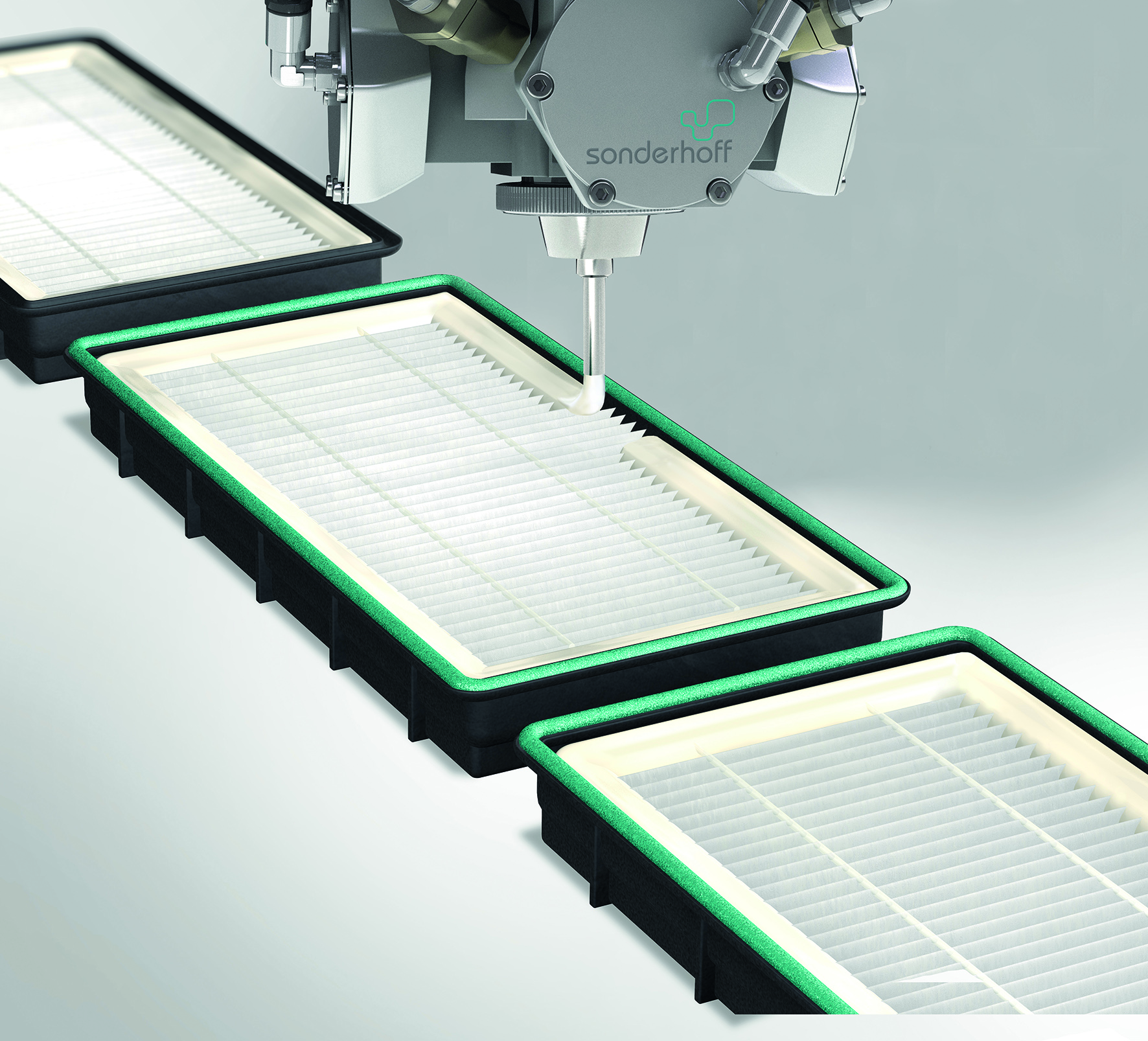
Sonderhoff will present its foam sealing and adhesive products for the filtration industry at FILTECH 2018.
The two-component systems for sealing, gluing and potting applications are applied directly to the filter components using Sonderhoff mixing and dosing units.
The company's Fermadur polyurethane-based adhesive sealants are used foamed for the gluing and sealing of filter media. The density of the adhesive is thus lower and the material consumption is said to be reduced by up to 50%, saving cost and weight.
At booth R9 in Hall 11.1, Sonderhoff will demonstrate a filter application live using the SMART-M dispensing cell. The system will use the mixing head to meter a Fermadur adhesive sealant onto the insides of an MDF filter frame over its entire surface so that the pleated filter placed in the frame is sealed airtight on all sides.
Sonderhoff supports manufacturers of filter systems with a range of two-component foam gaskets, adhesives and potting compounds for applications ranging from vacuum cleaners and automotive filters, to air filters for HVAC systems. The PU systems meet the quality requirements of VDI 6022 for use in filters in ventilation and air conditioning systems (RLT) in hospitals and for chip production in cleanrooms. Filter frames are sealed with sealing foams or gels using the tongue and groove principle so that no unfiltered air can pass the filter and into the interior spaces.
Low-emission foam gaskets
Sonderhoff's polyurethane foam gaskets Fermapor K31 Low Emission are mainly used in car air conditioning systems, where the low-emission polyurethane foam sealing systems avoid polluting the driver's cab with VOC emissions. They meet, for example, Daimler's specification DBL 5452-13, which specifies as target values for VOC emissions of 100 μg and for fogging behavior 250 μg per gram of polyurethane.
Anti-bacterial properties for HVAC systems
The anti-fungicidal and anti-bacterial properties of Sonderhoff's filter adhesives and foam gaskets prevent microorganisms and mould from sticking to the seals of air conditioning filter frames or to the car's fresh air intake. This has been confirmed in tests performed by the Institute for Air Hygiene (ILH Berlin), which examined Sonderhoff products for their resistance to fungi and bacteria in accordance with DIN EN ISO 846 (Determination of the effect of microorganisms on plastics). Additives in the material formulation provide effective protection against infestation with harmful microorganisms, which represent a potential risk of allergies.
SMART-M compact dispensing cell
The SMART-M dispensing cell has a modular design, making it adaptable to different production concepts. At the Sonderhoff FILTECH stand, the cell will be loaded with parts via a rotary indexing table. The loading and working positions change 180 degrees in a cycle of 1.5 seconds.
With dimensions of 1200 x 1700 x 2400 mm, the SMART-M needs minimal floor space. The 3-axis linear robot of the dispensing cell moves components in a travel range of up to 500 x 600 mm (width x depth) and up to a maximum part height of 250 mm. In component radii an acceleration of up to 5 m / s² is possible.





